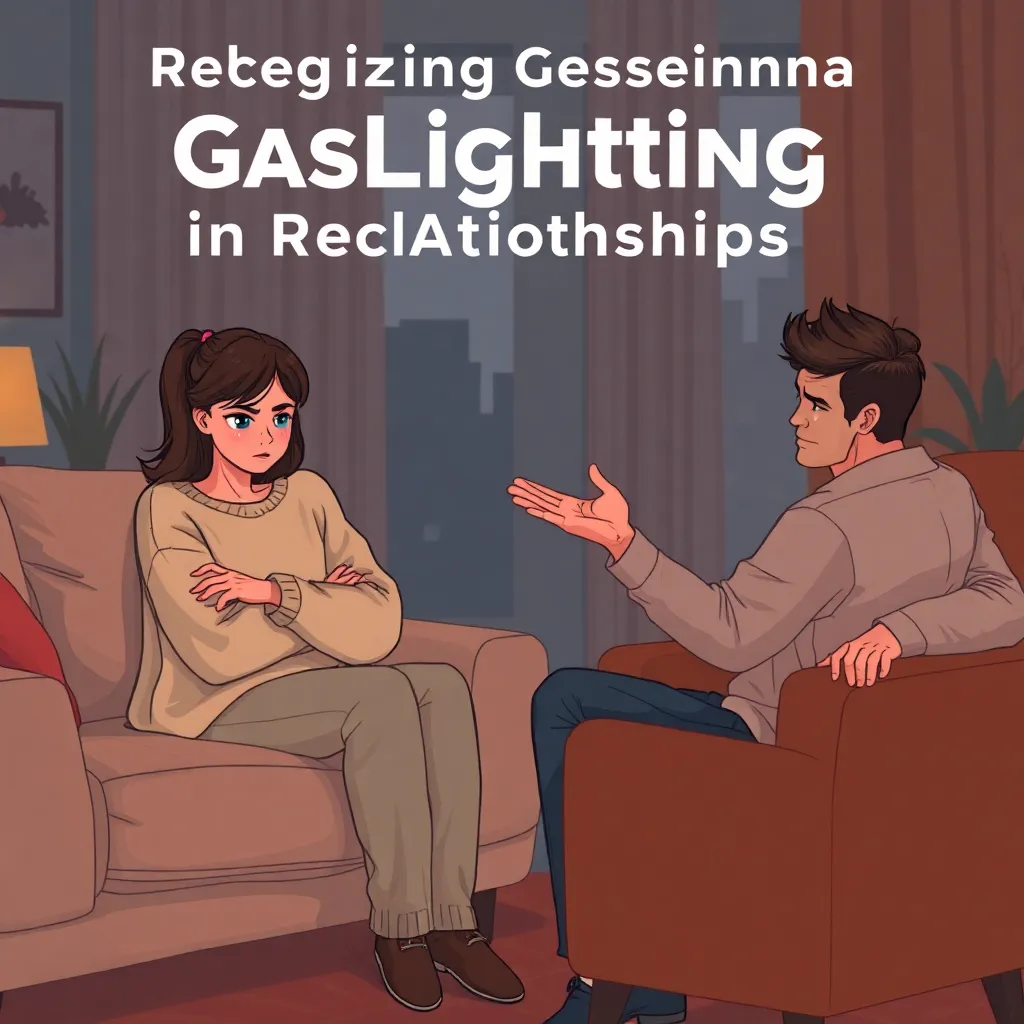In the delicate tapestry of our relationships, there are threads that can sometimes unravel our sense of reality and self-worth. One such insidious thread is gaslighting, a form of psychological manipulation that can leave you questioning your own perceptions and feelings. You may have found yourself doubting your memory or sanity due to someone else’s influence and wondered, “Am I overreacting?” or “Why do I feel so confused?” These are common experiences for those who have been subjected to gaslighting, and understanding this behavior is crucial for reclaiming your power and clarity.
Gaslighting isn’t just a buzzword; it represents a profound breach of trust that can erode the foundation of any relationship, whether romantic, familial, or professional. By delving into the mechanics of gaslighting, you can begin to recognize its signs, understand its impact, and take steps to protect yourself. This article aims to illuminate the shadows cast by gaslighting, offering you the tools to identify when it’s happening and how to respond effectively. You’ll learn to trust your instincts again and set boundaries that safeguard your emotional well-being.
As you read on, you’ll discover practical advice on how to confront gaslighting behavior and seek support from those around you. We will explore the psychology behind why people gaslight and how to navigate conversations with individuals who may not even realize they are doing it. With a compassionate approach, this article will empower you to reclaim your narrative and foster healthier, more respectful connections. Let’s embark on this journey together, with empathy and understanding as our guides.
1. Defining Gaslighting in Relationships

In relationships, the term gaslighting describes a form of emotional manipulation where one partner seeks to make the other doubt their own perceptions. This tactic can be subtle, leaving the victim questioning their reality and feeling increasingly confused over time.
Imagine a partner persistently denying events that have happened, insisting that the other is forgetful or overly sensitive. Over time, the affected individual may start to trust the manipulator’s version of reality over their own experiences.
Experts in psychology often highlight that gaslighting is a power move, where one person gains control by distorting truth. Dr. Robin Stern, author of “The Gaslight Effect,” notes that the gaslighter’s goal is to destabilize the victim’s sense of self.
To combat gaslighting, it’s crucial for individuals to maintain a sense of their own reality. Keeping a journal of events and conversations can be a powerful tool, helping to reaffirm one’s perceptions and experiences.
Ultimately, recognizing the signs of gaslighting early can prevent deeper emotional harm. Acknowledging this manipulation is the first step towards reclaiming power and nurturing a healthier relationship dynamic.
2. Recognizing Gaslighting Tactics

Recognizing gaslighting tactics can be challenging, especially when they are subtly woven into everyday interactions. In a typical scenario, a partner might frequently *deny* or *downplay your feelings*, making you question your own reactions and memories.
Another common tactic involves *shifting blame* where the gaslighter may twist situations so you feel responsible for their choices or actions. This can leave you feeling confused and guilty, making it harder to trust your own judgment.
Gaslighters often use *selective remembering*, conveniently forgetting events or conversations that don’t suit their narrative. This behavior can make you second-guess your own memory, leading to further self-doubt.
In some cases, gaslighters employ the tactic of *public humiliation*, subtly embarrassing you in front of others to erode your confidence. This can make you feel isolated, as if no one else will understand or support you.
To effectively navigate these tactics, consider seeking support from friends, family, or a therapist who can provide an *outside perspective*. Remember, understanding these tactics is the first step to reclaiming your sense of reality and empowerment.
3. Psychological Impact of Gaslighting

Gaslighting can have a profound psychological impact on its victims, often leading to feelings of confusion and self-doubt. In many cases, individuals begin to question their own reality, feeling as though they can no longer trust their own perceptions and memories.
The erosion of self-trust can result in a loss of confidence and increased anxiety. For example, someone who is constantly told they are overreacting may start to suppress their emotions, doubting their validity.
In real-world relationships, this can manifest as a person repeatedly apologizing for things they didn’t do, just to maintain peace. They may find themselves frequently seeking reassurance from others, as their sense of self has been undermined by the gaslighter’s tactics.
To counteract these effects, it’s crucial to establish a support network of friends or a therapist who can provide validation and perspective. An expert in psychology might suggest journaling to help ground one’s reality and regain a sense of self.
Ultimately, understanding the psychological impact of gaslighting is the first step in reclaiming your power and autonomy. By recognizing these patterns and seeking support, you can begin to rebuild your self-confidence and trust your instincts once more.
4. How to Confront Gaslighting

Addressing gaslighting requires a blend of courage and strategy. It’s important to approach the situation with a clear mind and a determined heart, understanding that your feelings are valid and deserve to be heard.
Begin by documenting specific instances of gaslighting to have a concrete basis for your confrontation. This can include keeping a journal or a digital log, noting the details of each encounter that left you feeling confused or doubting your reality.
When you decide to confront the gaslighter, choose a time when both of you are calm and not distracted by other issues. Use “I” statements to express how their actions make you feel, which helps to avoid putting them on the defensive and encourages open communication.
In some cases, the gaslighter may not respond positively, which is why it’s essential to have a support system in place. Trusted friends, family members, or a professional therapist can provide guidance and help reinforce your sense of reality and self-worth.
Experts suggest that reinforcing your own perception of events can be empowering. Trusting your instincts and standing firm in your understanding of situations can help diminish the gaslighter’s influence over time.
Confronting gaslighting is a significant step towards reclaiming your autonomy and self-confidence. By taking proactive measures, you can create a healthier relationship dynamic or decide if moving on is the best path for your well-being.
5. Healing After Gaslighting Experiences

Healing from a gaslighting experience can be a journey of self-discovery and empowerment. It often begins with recognizing that your feelings and perceptions are valid and important, even if they were previously dismissed.
Many individuals find that reconnecting with trusted friends or family can be an important step. These relationships serve as a supportive foundation, helping to rebuild self-esteem and trust.
Therapy or counseling can also be incredibly beneficial, providing a safe space to explore past experiences and develop coping strategies. A professional can offer guidance and support as you process emotions and learn to set healthy boundaries.
Engaging in activities that bring joy and fulfillment can further aid in the healing process. Whether it’s pursuing a hobby, exercising, or meditating, these activities help you reconnect with your inner strength and resilience.
It’s essential to be patient with yourself and understand that healing is a gradual process. By taking small, consistent steps, you can move towards a place of peace and self-assurance, leaving the shadows of gaslighting behind.
Conclusion: Creating Beautiful Outdoor Spaces
Understanding gaslighting is crucial for nurturing healthy relationships. This article has explored five key concepts: recognizing the subtle signs of manipulation, understanding the psychological impact on victims, strategies to confront gaslighting behavior, the importance of seeking support, and ways to rebuild trust and confidence. Armed with this knowledge, you’re empowered to identify and address gaslighting in your own relationships or support others who might be experiencing it.
As an actionable next step, take a moment to reflect on your relationships and identify any instances where you may have felt manipulated or doubted your own reality. Journaling your thoughts can provide clarity and help you decide your next move.
Remember, knowledge is a powerful tool in fostering meaningful connections. Bookmark this article to revisit these insights whenever you need to refresh your understanding or support someone else. By staying informed and proactive, you pave the way for healthier, more authentic relationships in the future.
With these tools at your disposal, you are well on your way to relationship success. Empower yourself and those around you to build bonds based on trust, respect, and genuine understanding.
